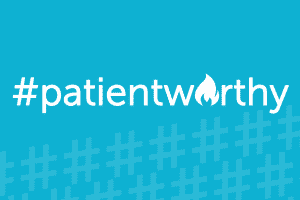The Asco Post recently interviewed Dr. Jean Pierre Bizzari, the Executive Vice President of Celgene, a multinational bioparmaceutical company. The interview covered various aspects of research and development (R&D) which led to Dr. Bizzari’s explaining how within fifteen years patient overall survival for many types of cancer moved from just a few years to an average of ten years.
Although the entire interview focused on Celgene and its role in the ever-changing markets, Dr. Bizzari briefly mentioned that his father died of colon cancer thirty years ago. At the time of his father’s illness, there was only one drug available. Currently, there are five active therapies for colon cancer. He looks back over the many advances in medicine during the past three decades and acknowledges that many lives that have been saved.
About Celgene R & D
Celgene’s R&D focus is on the patient and on acquiring a broader knowledge of tumor biology. The company then proceeds to apply that knowledge to a specific therapy.
Most of Celgene’s research involves biomarker development. A biomarker is a characteristic or substance that indicates a biological condition and is relied upon for targeted therapies.
Celgene has developed several drugs related to immunomodulatory therapy that applies to three types of immune system diseases.
- Immunosuppressant drugs and tolerogens treat autoimmune diseases (MS for example) as well as transplants where the body attacks its own tissue.
- Immunostimulant drugs are administered to strengthen a weakened immune system (cancer, AIDS) or life-threatening infections.
A major focus of its R&D is on cancer. Celgene has had success in treating blood cancers such as multiple myeloma and myelodysplastic syndromes (MDS).
The company is applying its success in epigenetics (the study of biological mechanisms that switch genes on and off) to other blood cancers. These include non-Hodgkin lymphoma and chronic lymphocytic leukemia. At present they have over thirty active phase 3 trials.
The New Markets
Challenges and changes are growing in the areas of patient and disease-specific needs. These issues are being addressed by Celgene in:
- Biology, the study of living organisms
- Genomics, the study of the complete set of DNA
- Proteomics, the study of proteins
Dr. Bizzari points to Celgene’s drug lenalidomide (Revlimid) that was used successfully in the treatment of myelodysplastic syndrome, a blood disorder. Its success was the result of Celgene’s scientists identifying deletion 5q abnormalities.
A work in progress involves non-small cell lung cancer and the biomarker SPARC. Celgene is investigating whether SPARC predicts long term survival when the drug Abraxane is administered to patients. Abraxane is used to treat advanced breast cancer, lung cancer, and pancreatic cancer.
Celgene intends to introduce five new “blockbusters” by 2020. Dr. Bizzari explained that global opportunities will result from developing targeted therapies that will vastly improve patients’ quality of life.
Are Changes in Clinical Trials Necessary?
Dr. Bizzari believes it is necessary to have a dialog with regulatory agencies regarding the creation of new trial designs and the final outcome of clinical trials. He agrees that the most important endpoint of a trial is overall survival (OS).
Second to OS would be the frequent analysis of data that would advance the clinical adjustments needed for a successful trial. Dr. Bizzari stresses the need for more oncology trials. He compares the small response to oncology trials to 20,000 to 25,000 patients responding to the global heart failure registry.
Biomarkers are the third component that can move an investigational drug from the second to the third phase of a clinical trial. Focusing on biomarkers will have the effect of improving safety, minimizing adverse effects on patients, and increasing its beneficial effect.
The company is attempting to coordinate its efforts with industries, government institutions, and patient advocate groups worldwide. In this way, these new therapies may contribute to lower healthcare costs and a longer and improved quality of life throughout the world.


.jpg)




